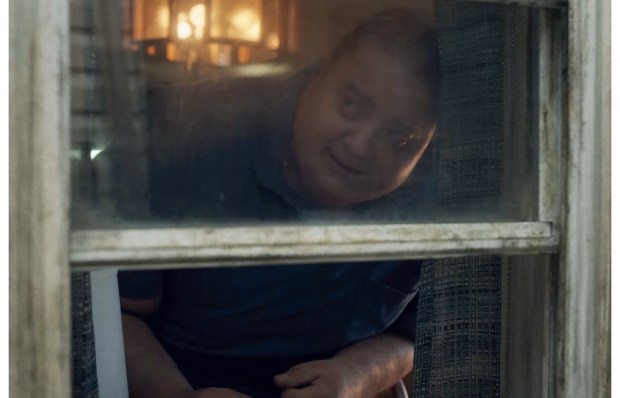The Forgiven is based on the novel by Lawrence Osborne and stars Ralph Fiennes (terrific) and Jessica Chastain (ditto) as a wealthy British-American couple driving to a weekend-long party in a luxurious Moroccan desert villa when they hit and kill a young local boy on the road. Oops. What the film adds up to, I cannot say, as it isn’t clear. Who is forgiven? Is anybody? It’s ethically ambiguous and you have to do your own moralising, which is always a drag. (Note to filmmakers: I’m old, I’m tired, please spoon-feed me.) But it’s a compelling, tense journey even if it’s a pitiless one. Human nature doesn’t come out of this at all well.
The film has been adapted by John Michael McDonagh (The Guard, Calvary), who also directs. The main characters are David Henninger, a doctor, and his wife, Jo (Chastain). We first meet them as they arrive in Tangiers by boat. They are fractiously bickering from the off, are wholly unsympathetic, and you will hate them on sight. He’s the sort of man who wears perforated driving gloves and doesn’t have a nice thing to say about anybody or anything. He calls Muslims ‘towel heads’ and even a spectacular view can’t win him over: ‘Quite picturesque… in a banal way.’ He has only one redeeming quality and that’s his taste in linen shirts. He has a few of those and they are all quite lovely.
He’s an alcoholic and has put away a bottle of wine when they set out for the last leg of their journey in a hire car. He accidentally hits a boy who was out on the road selling fossils to tourists. There’s a hit and run in White Teeth and a hit and run in The Great Gatsby and multiple other narratives, but in this instance David, surprisingly, does the right thing. He does the hit but not the run. The body is put in the car and taken to the party where their host calls the police. Their host is Richard Galloway (Matt Smith) who somehow knew David at school, which is perplexing, given the age difference. Galloway, who is an expert in Islamic art, has renovated a remote ksour into a state of opulent magnificence. Here, the party is in full swing. Drink, drugs, bankers, aristos, beautiful young women off their heads. The Berber staff are treated as part of the décor. Galloway’s boyfriend, Dally (Caleb Landry Jones), has even, as he proudly announces, designed their sumptuous uniforms. These are careless people, to quote F. Scott Fitzgerald, driven by an empty boredom, and in that sense this does have a Great Gatsby vibe.
The police rule the killing as ‘accidental death’ and that’s it, it’s over, and the partying continues until the next day when the boy’s impoverished father, Abdellah (Ismael Kanater), arrives. He doesn’t ask for money as expected. He says David must accompany him to the boy’s home to bury him as a mark of respect. David agrees as he doesn’t wish to appear cowardly. So we leave Jo, partying and flirting with an American banker, while David travels across the country. Does Abdellah plan to kill him? Will something within David shift? Will he acquire self-knowledge? Will he realise that poor people are human too? It is to Fiennes’s credit that David, as hateful as he is, never sinks into caricature. He always seems on the brink of something even if it’s never clear what that is. Other characters are less developed. Alex Jennings, for example, pops up as a British lord with a posse of much younger women in tow, for no good reason whatsoever. Except, I suppose, to show such people exist. Meanwhile, McDonagh directs with a sure hand that always keeps us guessing. As for the ending, it’s dark and surprising even if, goddamnit, I can’t tell you exactly what it means.
Got something to add? Join the discussion and comment below.
Get 10 issues for just $10
Subscribe to The Spectator Australia today for the next 10 magazine issues, plus full online access, for just $10.
You might disagree with half of it, but you’ll enjoy reading all of it. Try your first month for free, then just $2 a week for the remainder of your first year.














Comments
Don't miss out
Join the conversation with other Spectator Australia readers. Subscribe to leave a comment.
SUBSCRIBEAlready a subscriber? Log in